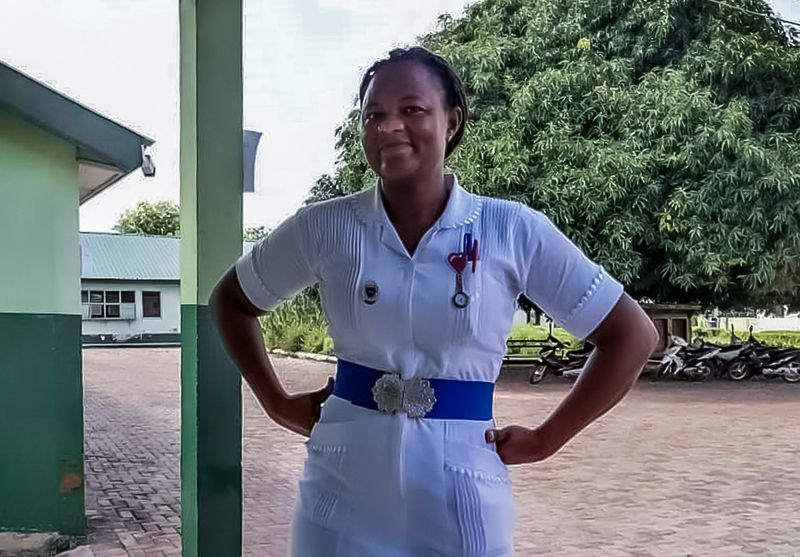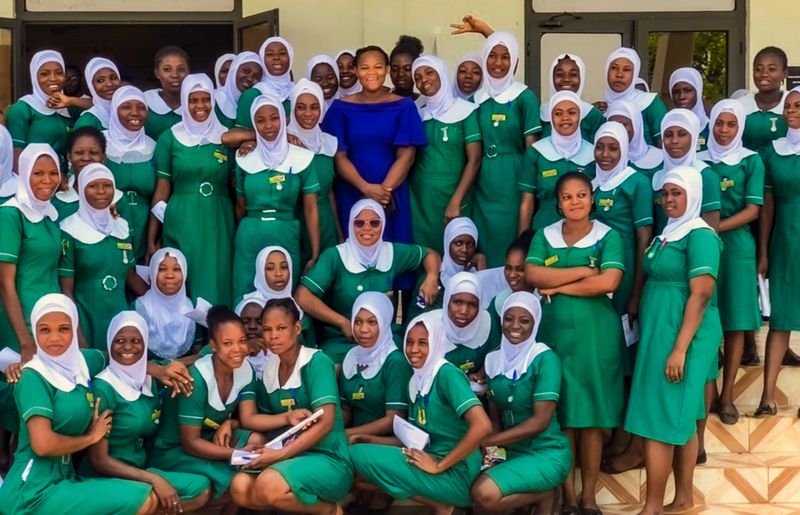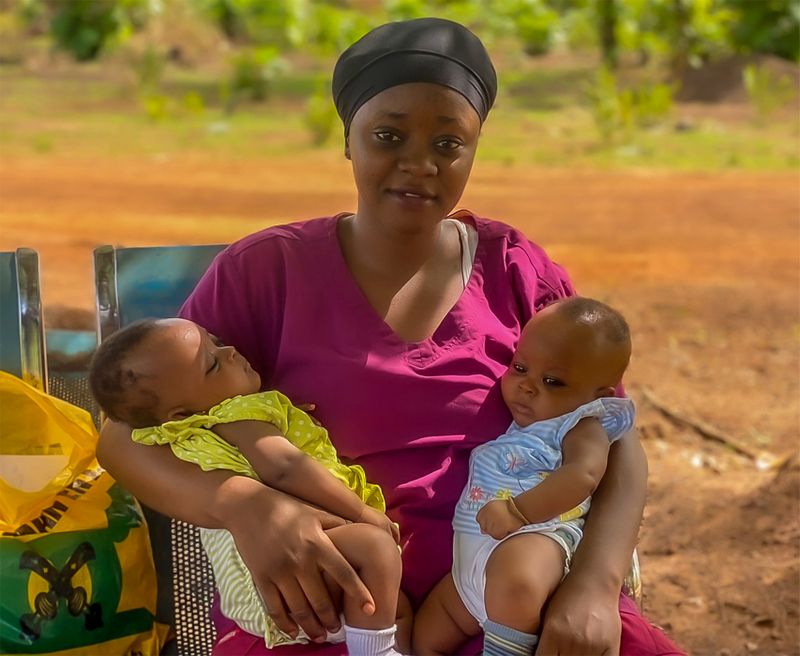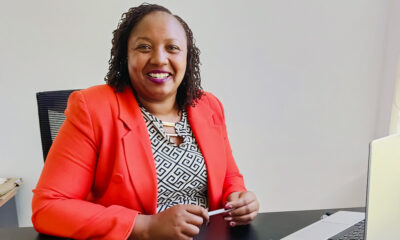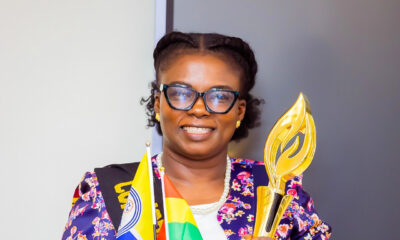News
This Midwifery Tutor is Bringing Hope to Parents of Preterm Babies
When Theresa Bagoniah gave birth to her 1.3-kilogram baby early, at 32 weeks and two days rather than an average of 40 weeks, her world and career trajectory turned upside down.
“Taking care of a preterm baby is not easy because they are delicate; they need extra attention to survive. My experience was even more challenging because I was at the University of Ghana doing my Masters course when I delivered, so combining academics and caring for the baby was not easy. My mother had to come on board to support me,” Bagoniah explained.
In Ghana, there are an estimated 128,000 premature (or preterm) births yearly, with 8,400 infants dying before the age of five due to complications arising from prematurity.
Because their bodies are not yet fully developed, preterm babies may have problems breathing and suffer from other complications, including infections.
Bagoniah, who now works as a lecturer at the Kpembe Nursing and Midwifery Training College in the Savannah Region of Ghana, also encountered a fresh obstacle in her work schedule.
“I always had to leave the lecture hall to take my baby through the Kangaroo method, which involves skin-to-skin contact, so that she would not be cold. You know, because of their skin, they cannot generate heat to keep them warm.”
But this was not the only challenge she faced.
“It was expensive to take care of her since most medications taken by preterm babies are not the usual common drugs. Transportation to the hospital for routine reviews was a challenge. Getting a room heater and maintaining the room temperature at the required temperature were also problems. I had to rely on charcoal and a coal pot for the first few weeks until I was able to get one,” she explained.
After her experience, Bagoniah decided to use her knowledge to educate preterm and expectant mothers in Kpembe and its environs.
Since July 2022, she has been meeting women in different health facilities, churches, and even mosques, teaching them about different ways of caring for preterm babies. Today, Bagoniah has become a beacon of hope for preterm babies and their families in Ghana.
“Initially, it was challenging to get the attention of these mothers and fathers, but once I began to use myself as an example, I found that they were more receptive. I have helped and educated over one hundred preterm mothers,” she disclosed.
Bagoniah’s husband, Joseph Tunnor, fully supports his wife’s work and has even taken it upon himself to visit neonatal intensive care units to encourage fathers of preterm babies to support their wives.
“I support my wife 100 per cent in what she is doing. Recently, I visited the Neonatal Intensive Care Unit (NICU) at the Kintampo Municipal Hospital in the Bono East Region and spoke to some fathers of preterm babies. I encouraged them by showing them a picture of my daughter. I realised that they do not have feeding tubes at the place, so I am going to buy some for them. That is what I can also do to support these preterm babies. Fathers should support their wives in such situations.”
Victoria Agwiah, a neonatal nurse specialist in charge of the NICU at the Tamale Teaching Hospital in the Northern Region, where Bagoniah delivered, has commended her for her initiative.
“Theresa has been of great help by using her experience to educate preterm mothers as well as would-be mothers on how to take care of their babies. Her effort is also complementing our work. We have also adopted a strategy to bring men on board to serve as advocates on preterm, and it is working perfectly.”
Rashida Imoru, a 29-year-old preterm mother of twins, is one of the many mothers who have benefited from Bagoniah’s education.
“I am so happy today that my preterm twins are alive today, following the education I received. When I gave birth to my twins, they weighed 1.2 kilogrammes, but they now weigh 5 kilograms. I am grateful to the NICU nurses at the Tamale Teaching Hospital and Theresa Bagoniah for their immense contribution to the survival of my babies. The Kangaroo method helped my babies survive,” Imoru recounted.
Another preterm mother, Adisatu Mumuni, faced abandonment by her in-laws, who believed preterm babies were a curse. However, with the help of the nurses and Bagoniah, she could care for her baby and help him survive.
Bagoniah’s efforts have not been without challenges.
Outdated cultural beliefs have made it difficult to erase the stigma attached to preterm babies. But she is determined to continue her work and educate people that preterm babies can survive if their mothers stick to the advice they are given.
“Because of cultural beliefs, a lot of people have misconceptions about preterm babies. People see preterm babies as spirits; it is very difficult to erase this mindset. I am using the opportunity I have to erase these outmoded cultural practices. I know this will take time, but we will get there. Preterm babies can survive if mothers stick to the advice they are given,” she concluded.
Story by Michael Sarpong Mfum for bird story agency

